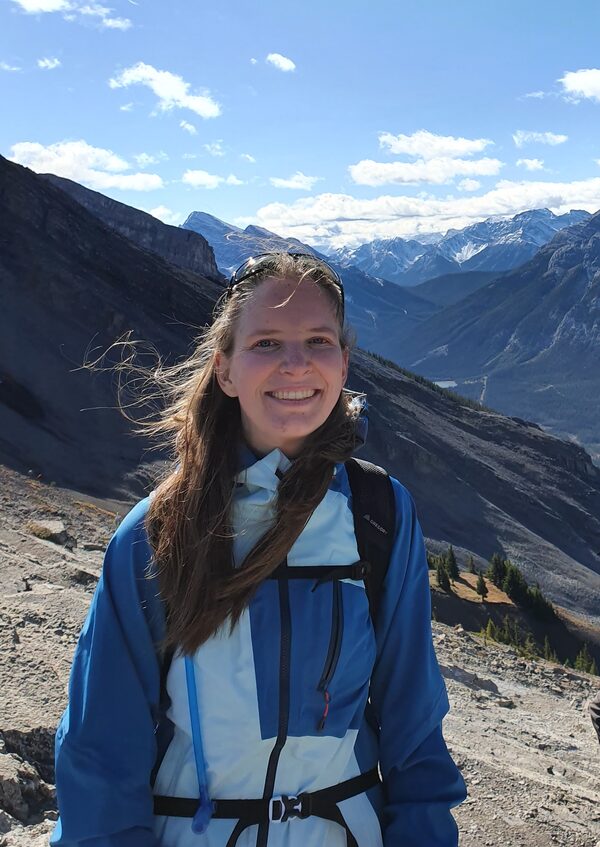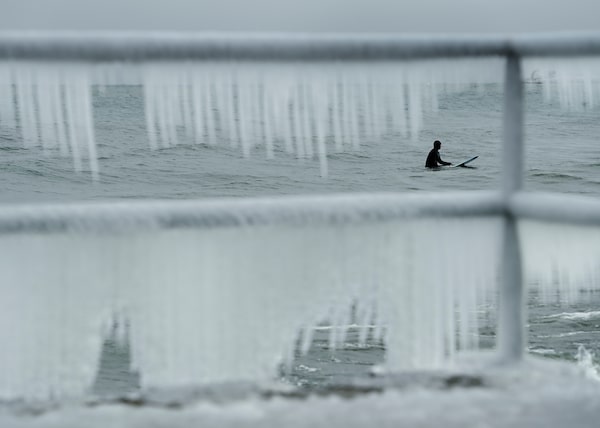Good afternoon, and welcome to Globe Climate, a newsletter about climate change, the environment and resources in Canada.
To start you off with some good news: A pair of Quebec-born cheetahs, brothers Kumbe and Jabari, are now adapting to life under the African sun.
The siblings will be released in a rare, international “rewilding” project that conservationists hope will help ensure the future of the species, which has declined to fewer than 200 animals from around 1,500 in 1975.
They need to first spend 60 days in quarantine before they are released into a 4,500-hectare reserve, but are already starting to show an interest in hunting, and generally acting like wild cheetahs.
Now, let’s catch you up on other news.
Noteworthy reporting this week:
- Guayaquil, Ecuador is one of the world’s worst coastal climate-change danger zones – and to save it, the poor are pitching in. As rising sea levels put the city at risk, their residents have an important part to play.
- “We’ve had five years and they’ve had four weeks:” Canada and the United States are taking the first, tentative steps toward a more continental approach to fighting climate change, Adam Radwanski writes.
- B.C. to tighten rules for trapping wolves after conservationists raised the alarm about a trophy hunter who announced her intent to remove a wolf pack.
A deeper dive
A different kind of resource to fight climate change: books
Sierra Bein is a content editor at The Globe and Mail, this week she rounds up a reading list.
In the fight to help the environment, we’ll need more than big business decisions. We’ll need to all get on the same page, so to speak, by educating ourselves and those around us.
This week, Donald Wright, an associate professor at the University of New Brunswick, writes a review of Michael Mann’s The New Climate War: The Fight to Take Back Our Planet.
“The old climate war, the war against climate science, is over – the science is settled and the evidence of anthropogenic climate change is visible out our kitchen window – but the new climate war, the war against climate action, is far from over,” says Wright.
“Climate inactivists stress individual over collective action in an effort to deflect attention from the real problem.”
Collective action is a theme in another big read this week, from Bill Gates, in an excerpt of his book How to Avoid a Climate Disaster: The Solutions We Have and the Breakthroughs We Need.
To get to net-zero greenhouse-gas emissions, all countries and all their local governments will have to level the playing field so industry and consumers can do their part. Gates outlines seven steps governments can take to start.
But some individual action, like studying, is still necessary. Here are a few more resources to help:
- ICYMI: I pulled together a list of books to help the environmentalist in you grow. Read our reviews and author interviews on books that explore climate change, nature and weather.
- Some books on the list include fiction like Weather by Jenny Offill. Or House Divided: How the Missing Middle can Solve Toronto’s Housing Crisis, written by our own columnist Alex Bozikovic.
- Or take David Suzuki’s advice. He has his own list of ideas on what you should be reading about the environment, by writers that continue to inspire him.
Anna Chelnokova/Getty Images/iStockphoto
What else you missed
- The federal government has announced $55-million in funding to support Canada’s clean technology sector, from a pool for Sustainable Development Technology Canada.
- Alberta and Ottawa say another $400-million in funding is available to help clean up inactive oil and gas sites in the province, including $100-million for Indigenous communities.’
- Alberta is also planning to expand Kitaskino Nuwenëné Wildland Park, the world’s largest connected stretch of boreal forest preserve.
- Pollution from fossil fuels causes one in five premature deaths globally, according to a study published in the journal Environmental Research.
- Audi has finally revealed its flagship all-electric e-tron GT sedan, and two versions will arrive in Canada this summer. We take a look at how it stacks up against EV rivals.
- Since U.S. President Joe Biden is pushing to achieve a carbon-free electrical grid by 2035, Canada sees an opportunity in hydropower exports.
- Doubts are surfacing over the Alberta government’s decision to restore a policy that protects the Rocky Mountains, as mining companies try to figure out how it impacts them.
Opinion and analysis
Despite appearances, cleaner mining companies do not mean a cleaner planet
Eric Reguly: “ESG investing is getting bigger by the day but hardly rules the market. Shedding dirty assets is the right strategy. But don’t for a second think a cleaner mining company means a cleaner planet.”
With Indigenous green-energy projects already proving their worth, it’s time for Ottawa to invest
Terri Lynn Morrison: “A Canadian clean-energy transformation can help create a new relationship among Indigenous peoples, allies, governments, utilities and corporations – one that is based on a profound and powerful embrace of a decolonized energy future.”
The opportunity for Indigenous business to become leaders in developing Canada’s critical minerals supply chains
Don Bubar and Phil Fontaine: “Political leadership is now needed to modernize policy and recognize that the entrepreneurial talent to create wealth and prosperity exists in many Indigenous communities in the North.”
Green investing
Riding the clean-tech IPO wave
As countries set targets to achieve net-zero emissions in the next 30 years, a quick succession of financings in Canada has bolstered the outlook for more deals involving renewable energy, electric-vehicle technology and hydrogen fuel-cell development. Numerous companies involved in the transition are planning IPOs to expand their operations and offer investors opportunities to benefit.
“So it’s definitely something that we’re keen and on top of and we think is going to be a key theme of capital markets for the foreseeable future,” said Tyler Swan, head of equity capital markets at Canadian Imperial Bank of Commerce.
Jeffrey Jones writes about sustainable finance and the ESG sector for The Globe and Mail. Reach him at jeffjones@globeandmail.com.
Making waves
Each week The Globe will profile a young person making a difference in Canada. This week, we’re highlighting the work of Anna McIntosh, a lawyer for Ecojustice

Anna McIntosh, lawyer for EcojusticeSupplied
My name is Anna McIntosh. I’m a 32-year-old lawyer for Ecojustice, based in Calgary (Moh’kins’tsis). I’ve worked on environmental issues at UN Environment in Geneva, in Taiwan and in Senegal, where I was struck by a colleague who limited trips on his scooter to help slow climate change, the cause of desertification in his community.
Fighting the climate crisis in Alberta today is challenging and never boring. On Feb. 11-12, I was in court to challenge the province’s public inquiry into “anti-Alberta” energy campaigns. I’ll also represent Ecojustice as we stand up to the province’s challenge against the federal Impact Assessment Act, a law that shapes decision-making on big projects with environmental impacts.
In many ways, there has never been a more exciting time to be an environmental lawyer. There’s a lot of work to be done and we need all hands on deck. Reading reliable sources, joining community efforts and writing politicians are great ways everyone can engage.
– Anna
Do you know an engaged young person? Someone who represents an engine of change in the country? Email us at GlobeClimate@globeandmail.com to tell us about them.
Photo of the week

A man is pictured through frozen icicles as he waits to catch a wave in the frigid ice cold waters of Lake Ontario during the COVID-19 pandemic in Toronto on Friday, February 12, 2021.Nathan Denette/The Canadian Press
Guides and Explainers
- We’ve rounded up our reporters’ content to help you learn about sustainable ways to live life at home, travel, invest, and generally to become informed about our species at risk.
- If you like to read, here are books to help the environmentalist in you grow, as well as a downloadable e-book of Micro skills - Little Steps to Big Change.
Catch up on Globe Climate
- Canada’s resource reckoning is coming
- Investing in the future never looked so green
- Biden’s fast pace shifts the pressure to Ottawa
- Keystone is just the beginning for the Biden team
We want to hear from you. Email us: GlobeClimate@globeandmail.com. Do you know someone who needs this newsletter? Send them to our Newsletters page.